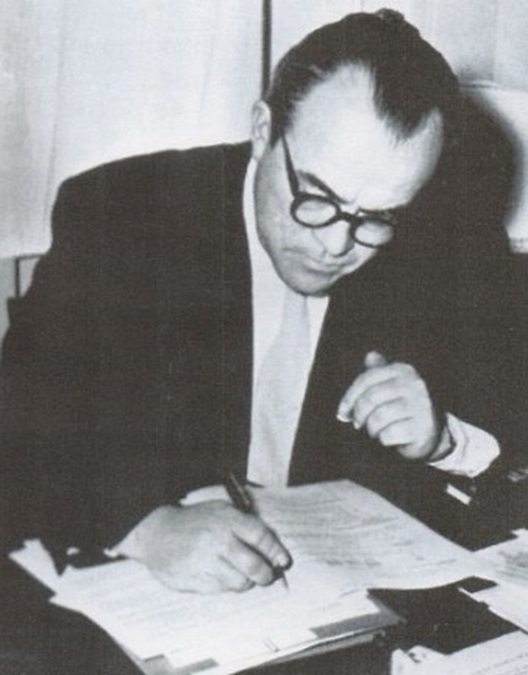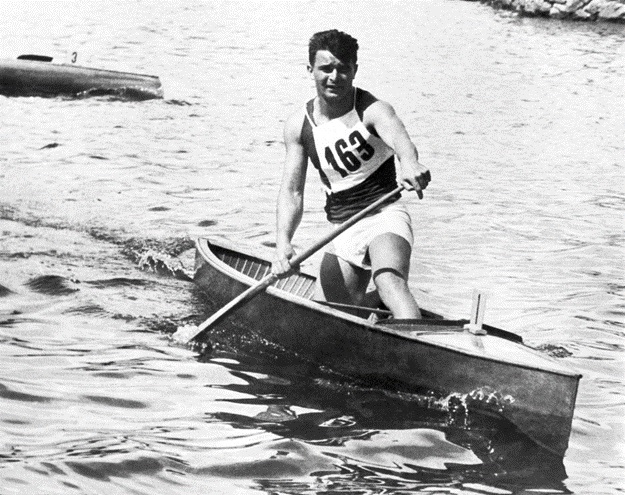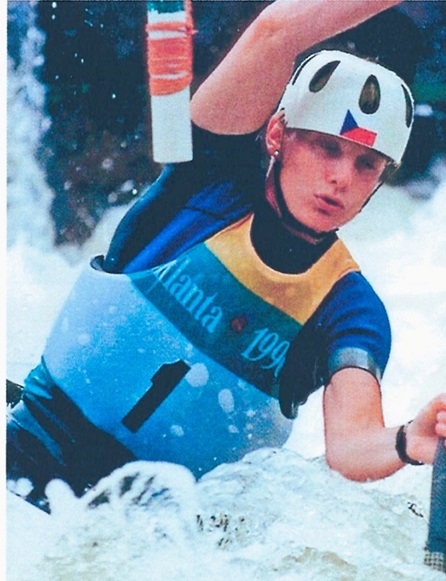The International Canoe Federation might be celebrating its 100th anniversary this year but there are national governing bodies of the sport that have a history stretching back even further.
The Czech Canoe Union is the oldest National Federation on the European continent, dating back to 1913 – 11 years before the ICF was formed.
In January 1924, the Internationale Repräsentantenschaft für Kanusport (IRK) - which later became the ICF - was created following a meeting of representatives from Denmark, Germany, Austria and Sweden.
A year later, the Czech Canoe Union joined the IRK, becoming the fifth founding member of the International Federation.
Canoeing featured as a demonstration sport at the Paris 1924 Olympics before being officially included on the program at Berlin 1936.
It was a huge moment in the history of the sport and Czechia can lay claim to having played a significant role in making it possible.
“Our activities helped canoeing to become an Olympic sport,” said Czech Canoe Union Honorary President Jaroslav Pollert.
“In 1925, Prague held the International Olympic Committee Session when a major international canoe race took place and members of the IOC were very happy with it.
“The first European Championships also took place in Prague in 1933 – five years before the first World Championships.
“IOC members were invited to Prague and after this they decided to introduce Canoe Sprint on the Olympic program for Berlin.
“Since Berlin 1936, Canoe Sprint has been a permanent member of the Olympic family.”
Canoe Sprint will feature at Paris 2024 – 100 years after the sport first appeared on the Olympic stage and 88 years after its debut as a medal discipline.
Czechia has continued to help develop paddle sport both on and off the water.
Numerous world and Olympic medals have been won by athletes from the country in Canoe Sprint and Canoe Slalom, with Czech star Jiri Prskavec capturing men’s K1 gold at the Tokyo 2020 Olympics.
Czechia is also a regular host of major ICF events, with Prague staging the annual Canoe Slalom World Cup from June 6 to June 9 this year.
Here is a selection of key figures in Czech canoeing over the past century:
Karel Popel
Dr Karel Popel remains the only Czech to have led the ICF having been in charge from 1954 to 1960.
He moved into the role of acting vice-chairman in 1949 following the death of then ICF President Jonas Asschier of Sweden before being elected five years later at the ICF Congress with an overwhelming majority of votes.
During his time at the helm, Prague hosted the Canoe Sprint World Championships in 1958 – the same year Dr Popel was re-elected for another four years.

Dr Popel was ordered to resign by his employer – the State Bank of Czechoslovakia – following political pressure with his country under communist rule at the time.
The ICF accepted his resignation in 1960 but approved him as Honorary President – a role he held until his death in 1972.
Jan Brzak-Felix
Jan Brzak-Felix is one of Czechia’s greatest ever paddlers having achieved success on both flatwater and whitewater on the global stage.
At Berlin 1936 when Canoe Sprint featured as a medal sport for the first time, Brzak-Felix captured men’s C2 1000 gold along with Vladimir Syrovatka.
After the Second World War, Brzak-Felix retained his Olympic title at London 1948, teaming up with Bohumil Kudrna.
He also claimed silver at Helsinki 1952 and achieved three golds at the Canoe Sprint World Championships as well as four medals at the 1949 Canoe Slalom World Championships.
Josef Holecek
If it had not been for the Second World War, Josef Holecek could have more than two Olympic golds to his name.
Holecek said he was in the shape of his life in the early 1940s but had to wait until London 1948 for his first appearance at the Olympics.
He duly marked his debut with gold, securing the men’s C1 1000 title before repeating that success four years later at Helsinki 1952.
As well as his Olympic golds, Holecek was national champion on 14 occasions and earned gold and silver at the 1950 World Championships in Copenhagen.

Martin Doktor
Known for wearing a black scarf featuring sculls tied around his head, Martin Doktor struck fear into his rivals.
Doktor etched his name in Czech canoeing history with two golds in the space of two days at the Atlanta 1996 Olympics, winning the men’s C1 500 and men’s C1 1000 crowns.
He carried the Czech flag at the Opening Ceremony of Sydney 2000 and starred again at Athens 2004 where he fell one place short of a medal in the men’s C1 1000.
His career also included 14 medals at the World Championships, with golds coming in 1997 and 1998.
With two Olympic titles and a large collection of other major medals, Stepanka Hilgertova is the best Czech kayaker of all time.
Her first Olympic gold came at Atlanta 1996 when she captured the women’s K1 crown before defending her title at Syndey 2000.
Hilgertova competed in six Olympics – a feat only achieved by three other Czech athletes – with the last of those appearances coming at London 2012 at the age of 44.
She finished her career in 2017 with seven world titles and seven European crowns to go alongside her Olympic triumphs.

*The ICF has produced this article in collaboration with the Czech Canoe Union
Related links




